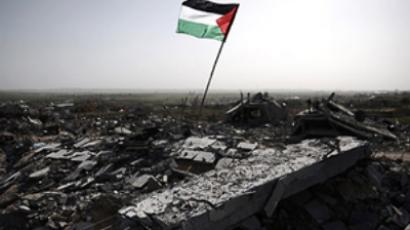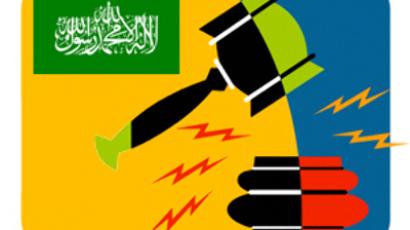Militants or poverty: What’s Palestinians’ lesser evil?
The Israeli offensive at the turn of the year left the Palestinian economy ruined. Some 600 businesses were destroyed, and unemployment is soaring. The fight for survival is forcing many to turn to militant groups.
When Benjamin Netanyahu was elected Israeli Prime Minister at the beginning of the month, he promised to improve the Palestinian economy. He said money – and not negotiations for peace – was the key to improving relations between both sides.
But Palestinian businessmen are skeptical.
A company producing 7 Up lemon-lime flavored soft drink is one of the few production lines still working in Gaza. However, with cash-strapped buyers, and an Israeli blockade, cold drinks are luxuries in a place that’s becoming among the poorest on Earth.
Mohammed Al-Yaziji, CEO at 7 UP, says:
"Before the Israeli blockade we had 500 employees. After the blockade that number was more than halved. The recent Israeli offensive destroyed much of our equipment, so we had to fire even more workers. Now there are less than a hundred left."
Netanyahu was an unpopular choice, especially after a war that destroyed some 600 industries and small businesses.
Ruined homes, ruined lives
According to the United Nations, 21,000 homes were destroyed, and 100,000 people left homeless. Twenty-three days of fighting left the Palestinian economy worse off than it was before.Omar Al-Azazi used to own an auto repair shop. His life’s work is now just a pile of rubble.
"There’s nothing to salvage here, everything’s just a big pile of junk. This shop fed seven families. The smallest of those families has 10 people in it."
Omar’s joined the growing ranks of Palestinian unemployed, which some economists estimate has risen to a staggering 70 %.
Today, most of 1.5 million residents of Gaza rely on handouts from the United Nations.
Despite pledges by the international community to donate more than $US 5 billion to help rebuild Gaza, none of it has materialized.
Hamas militants are back
When Israel went to war in Gaza last December, Israeli politicians kept telling Palestinians their real enemy was Hamas and not Israel. They hoped Gazans would soon come to blame the militants for the difficult economic situation they found themselves in. But that plan seems to have backfired.Today, Hamas fighters are back on the streets of Gaza – always on the look-out for new recruits. With the lure of shelter, food, and work, the radical movement has many unemployed Palestinians eager to become soldiers.
Many in Gaza are quick to blame Israel for the situation. But just how many of them hold Hamas responsible is difficult to gauge.
No one will openly speak out against the militant movement for fear of reprisals. Which means – for the time being at least – the choice for many Gazans is not really that much of a choice at all: handouts or Hamas.














